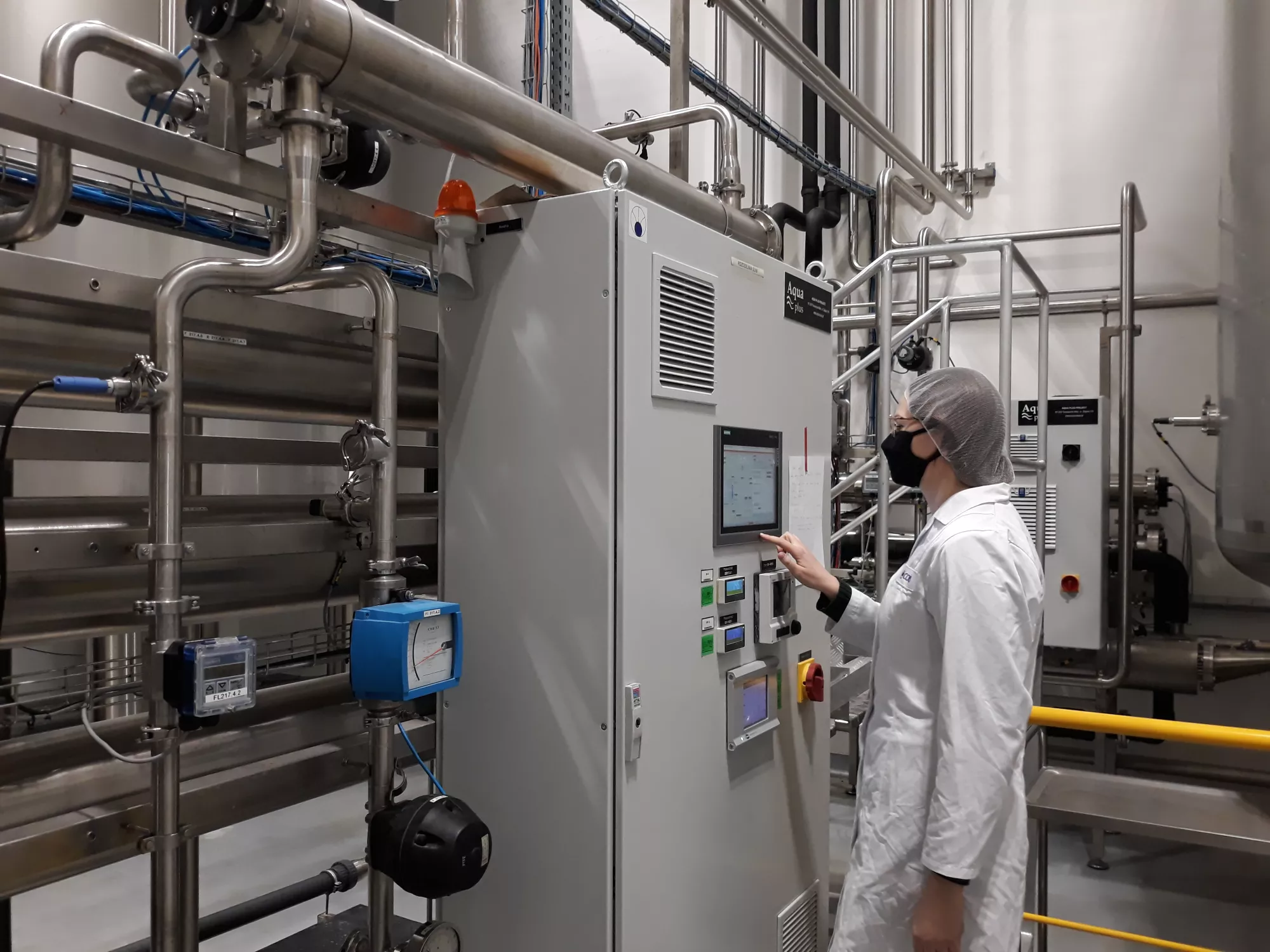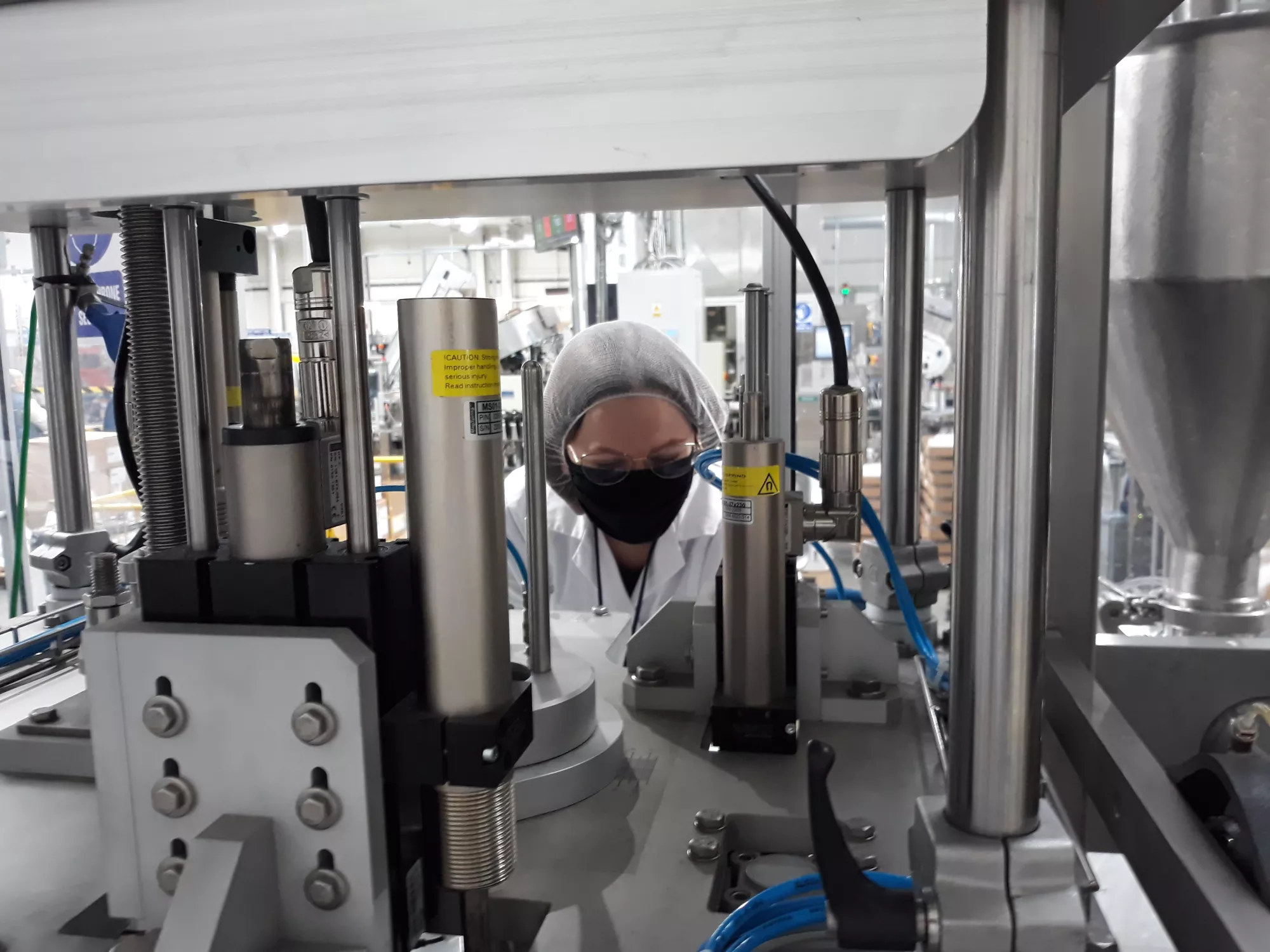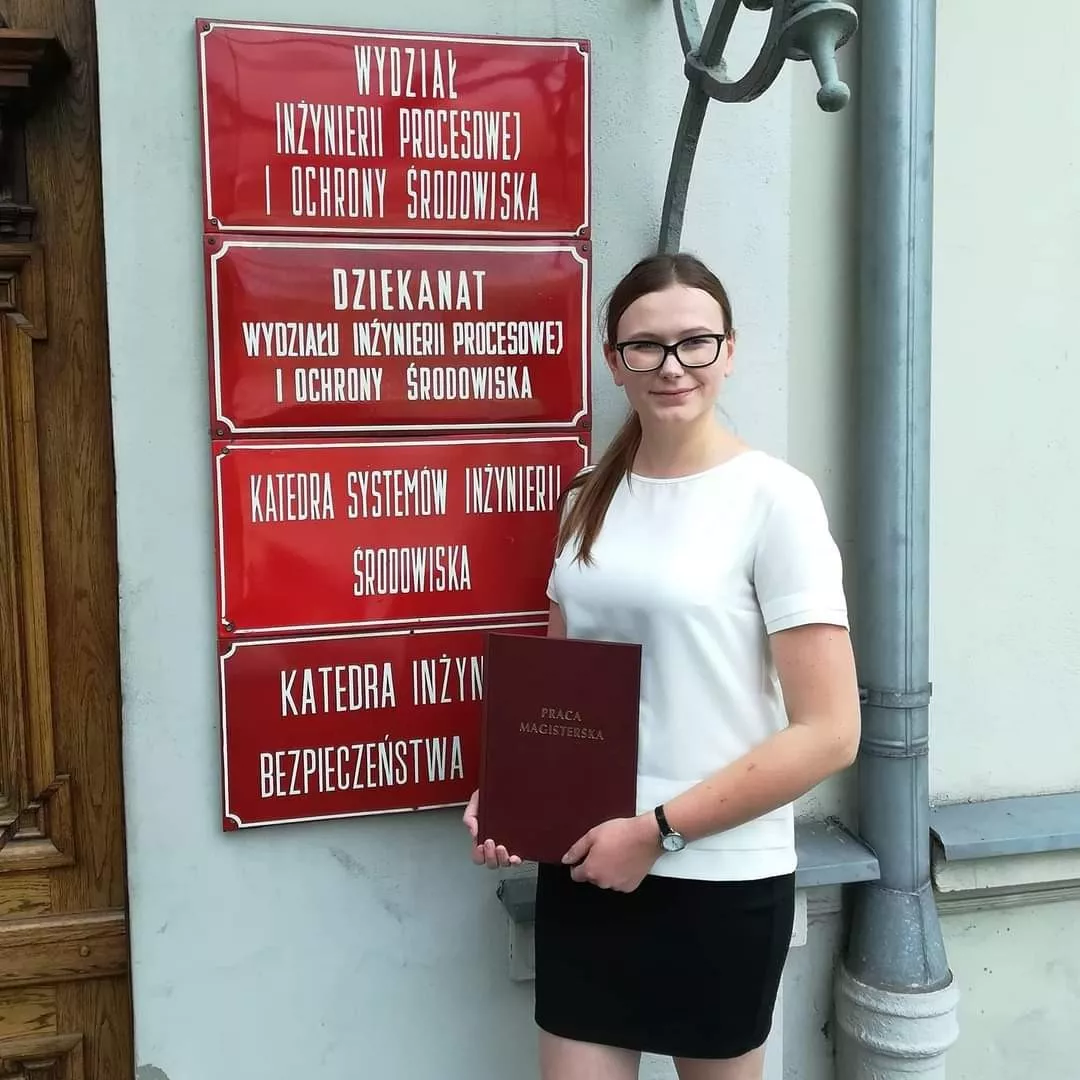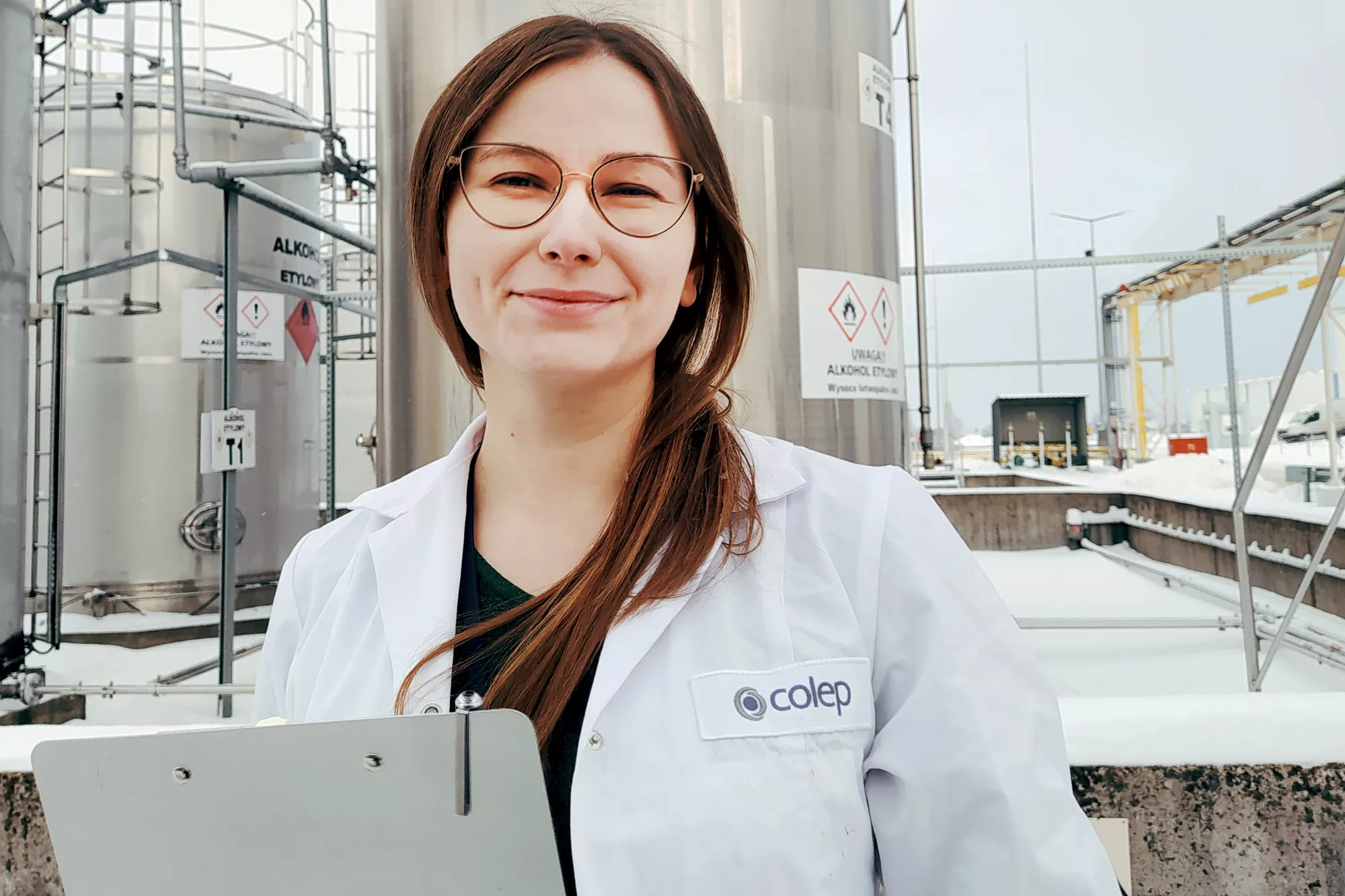Cosmetics industry - constantly new solutions and equally rapidly changing customer expectations. This is a challenge for traders, logisticians, managers, but also engineers. Patrycja Trajdos of Colep Polska Sp. z o.o. talks about what the work of a process engineer looks like.
What was the moment in your life when you said to yourself: "Yes, I want to study process engineering"?

Very early on. Actually, I chose my field of study in the first year of high school, mainly due to my interest in chemistry and mathematics. While studying the program of chemical and process engineering, I realized that such a diverse offer will later open doors to many industries. And I was right. When I look at this study program now, from a graduate’s perspective, I can see that the usefulness of this field of study in labor market has not decreased. As the industry develops, the demand for competent specialists continues to grow, and studying at WIPOŚ allows you to obtain reliable knowledge, which is an excellent basis for gaining professional experience.
You made the decision about the choice of a field of study at the beginning of high school. This is rare, as process engineering major may sound abstract even to high school graduates. What do students learn about in this field and what are the classes like?
True, in Poland few people know what process engineering is all about. Whereas after graduating from this major you can do virtually anything. The first year is devoted to deepening knowledge of mathematics, physics, chemistry and technical mechanics. Subsequent years open up the opportunity to delve into the world of fluid mechanics, thermal and diffusion processes. The syllabus is to prepare students for the challenges ahead; theoretical knowledge is consolidated during practical classes in the laboratory. Much of the knowledge is acquired by, but at any time they can count on the help of lecturers who appreciate the efforts and take an individual approach to each student.
As a student, you also took part in optional forms of activity. You were active in student research group SKN Oktan. How did you benefit from working in this group?

Yes, I was active in the group both during my first and second cycle studies. For almost four years, I had a great time with wonderful and creative people. I actively participated in small projects or seminars and proudly represented our faculty during student fairs and science picnics. As a young and rather shy student, I had to overcome my weaknesses and often stand in front of the audience and talk to the authorities of our faculty. Thanks to these activities, I can now confidently run meetings without unnecessary stress and sleepless nights.
How did your cooperation with Colep Poland start? And what did your career path in this company look like?
After defending my engineering thesis, I decided to look for a job and continue my studies at the second-degree program in part-time mode. As a result, I applied for the position of engineering department assistant and, after a successful interview, began my adventure with Colep Poland - a leader in the field of contract manufacturing. After two years of diligently performed duties as an assistant and earning my master's degree, I was offered the position of project implementation engineer by my supervisor. For me, it's a great opportunity to work alongside experienced professionals. I know that with their support and invaluable advice I can still learn a lot.
What do you do as an engineer?

In the cosmetics industry, customer expectations are dynamically changing. To meet the challenges, the company is focused on continuous growth, so in my position as an engineer I have no time for boredom. My main tasks include analyzing production possibilities for upcoming inquiries, implementing new projects, carrying out upgrades with machine manufacturers to pave the way for new products, coordinating installation work, taking care of safety aspects, and constantly working with project management, technical and maintenance departments.
Recruitment is underway for a second-degree program in chemical and biochemical engineering, as well as environmental engineering. Why pursue a master's degree at the Faculty of Process and Environmental Engineering?
I do believe that it’s worth trying to get this title, you can't let it go. In my professional life, the master's degree in engineering has given me a promotion to a position which is both interesting and challenging. Earning an M.Sc. degree can only bring benefits, such as the opportunity to earn more academic degrees, a better professional position and higher salary. And who knows, maybe it will also result in the discovery of new areas for development. I think it's worth taking up the challenge and finding time for self-development. Enrollment is open, so get on with it!
Interviewer: Aleksandra Pawlik
Graphics: Filip Podgórski
Photos: Colep Poland.

Colep has been on the market since 1965, and in Poland since 2002. We are a world leader in contract manufacturing of cosmetics (aerosols and liquid cosmetics). In total, Colep has 13 production facilities in 8 countries, employing more than 3,500 people. We are a dynamic and multidisciplinary team, open to innovation.
